|
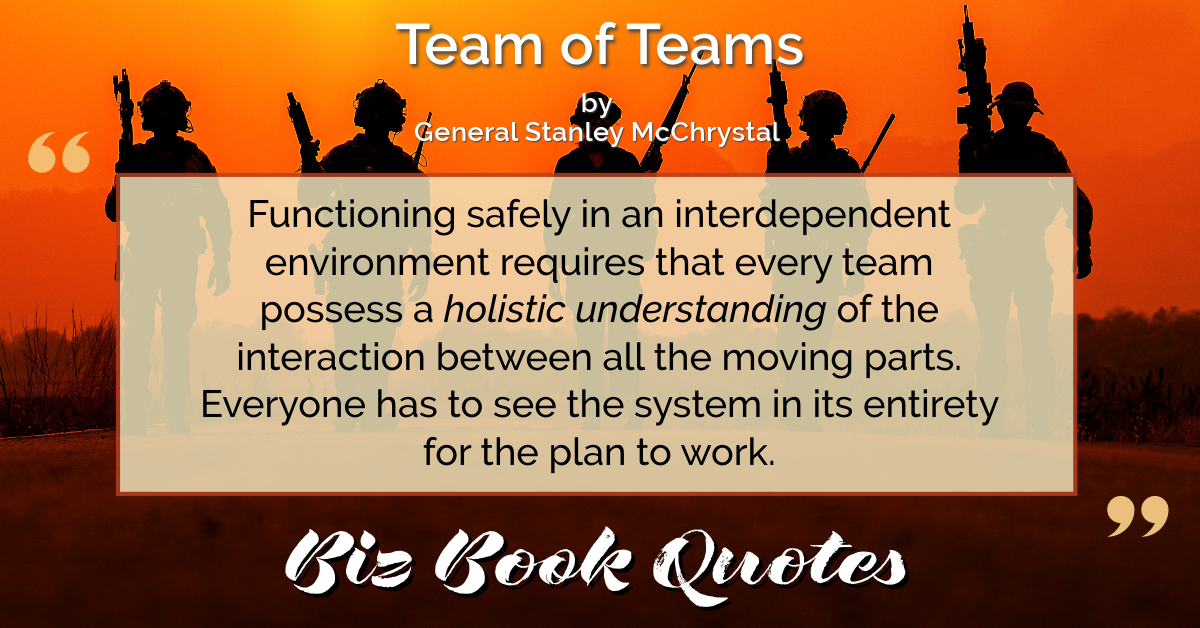
|
Team of Teams:
Functioning safely in an interdependent environment requires that every team possess a holistic understanding of the interaction between all the moving parts. Everyone has to see the system in its entirety for the plan to work.
|
141 |
|

|
Team of Teams:
…at the broader institutional level, it is more difficult to engineer structures that are both coherent and improvisatory.
|
143 |
|

|
Team of Teams:
…when creating an interactive product, confining specialists to a silo [is] stupid: high-level success depend[s] on low-level inefficiencies.
|
149 |
|
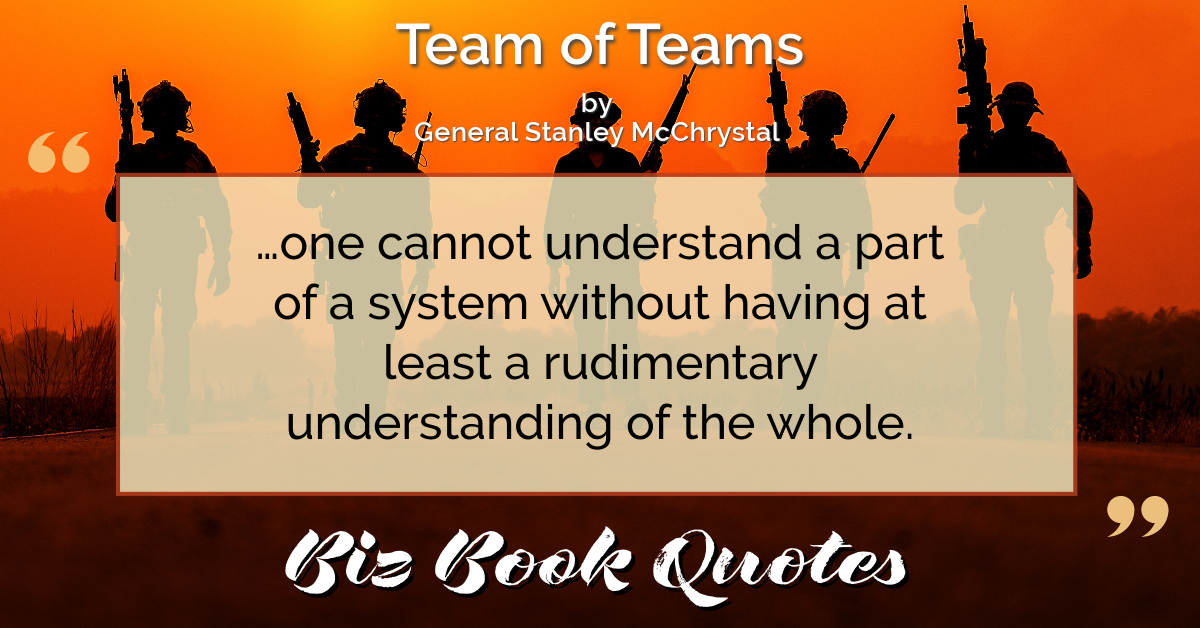
|
Team of Teams:
…one cannot understand a part of a system without having at least a rudimentary understanding of the whole.
|
149 |
|
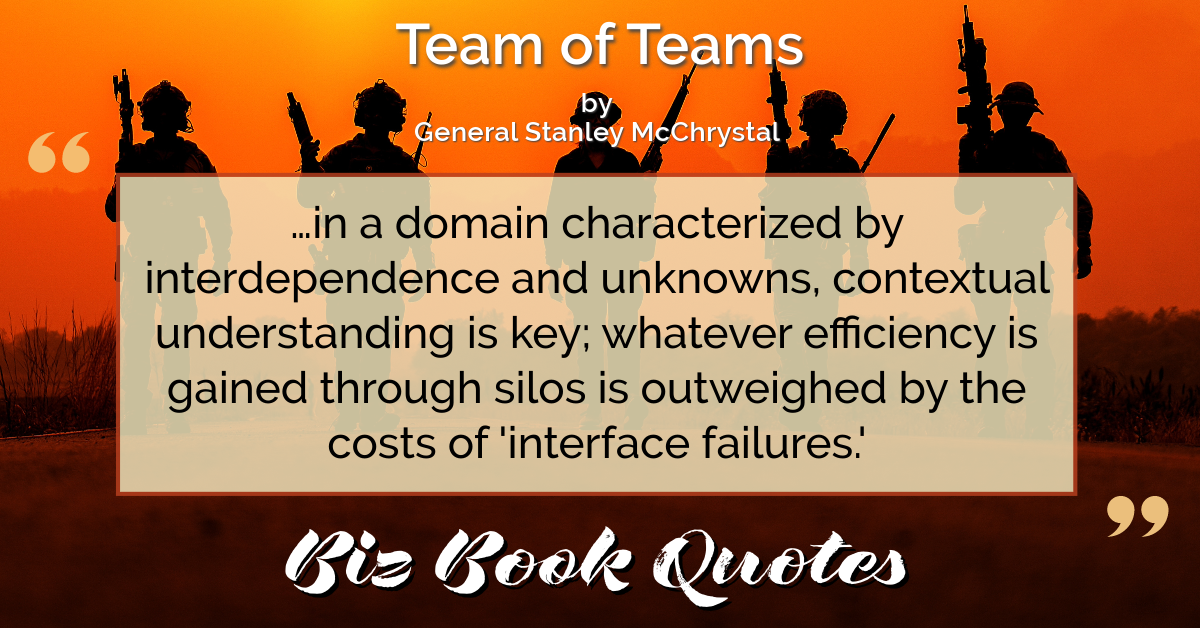
|
Team of Teams:
…in a domain characterized by interdependence and unknowns, contextual understanding is key; whatever efficiency is gained through silos is outweighed by the costs of ‘interface failures.’
|
151 |
|
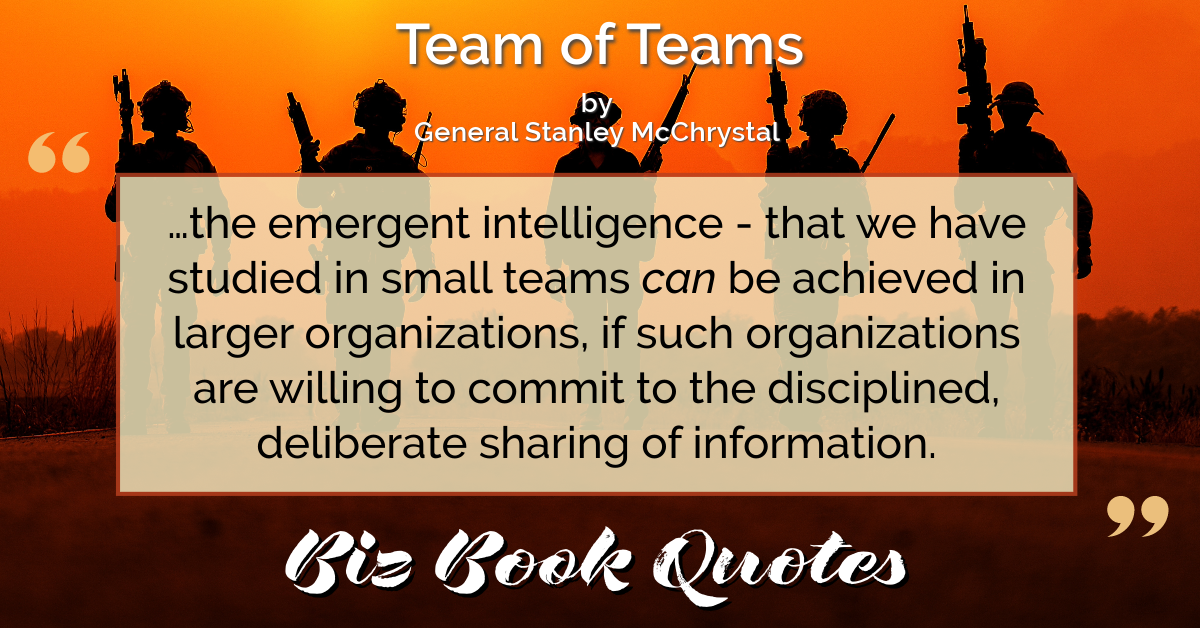
|
Team of Teams:
purpose affirms trust, trust affirms purpose, and together they forge individuals into a working team.
|
151 |
|
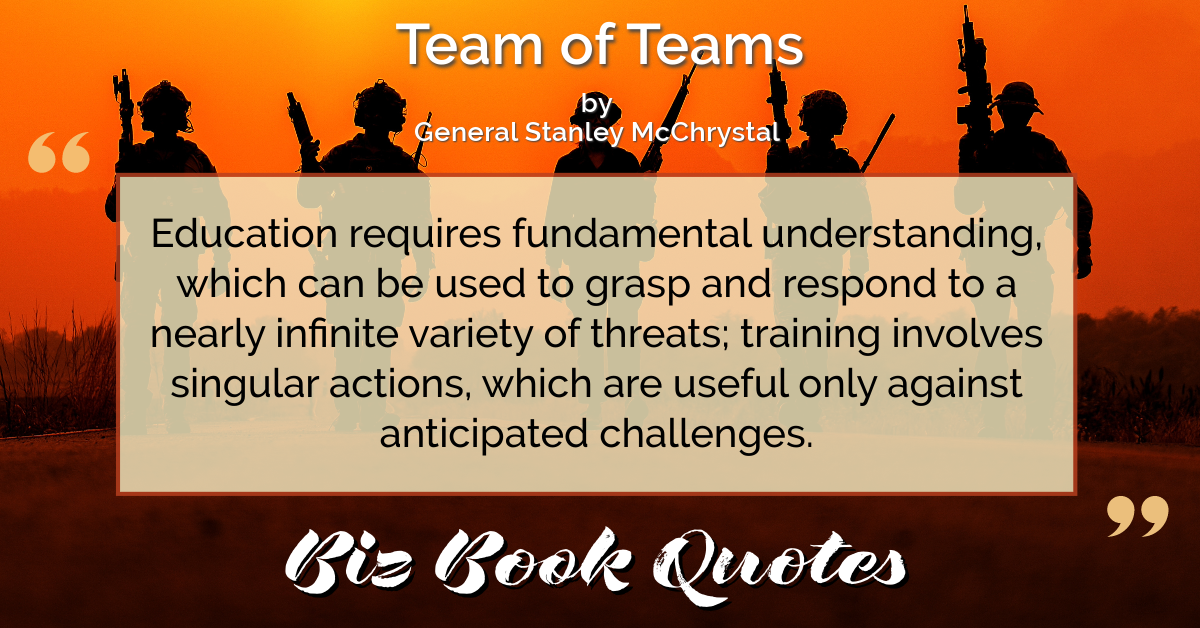
|
Team of Teams:
Education requires fundamental understanding, which can be used to grasp and respond to a nearly infinite variety of threats; training involves singular actions, which are useful only against anticipated challenges.
|
153 |
|
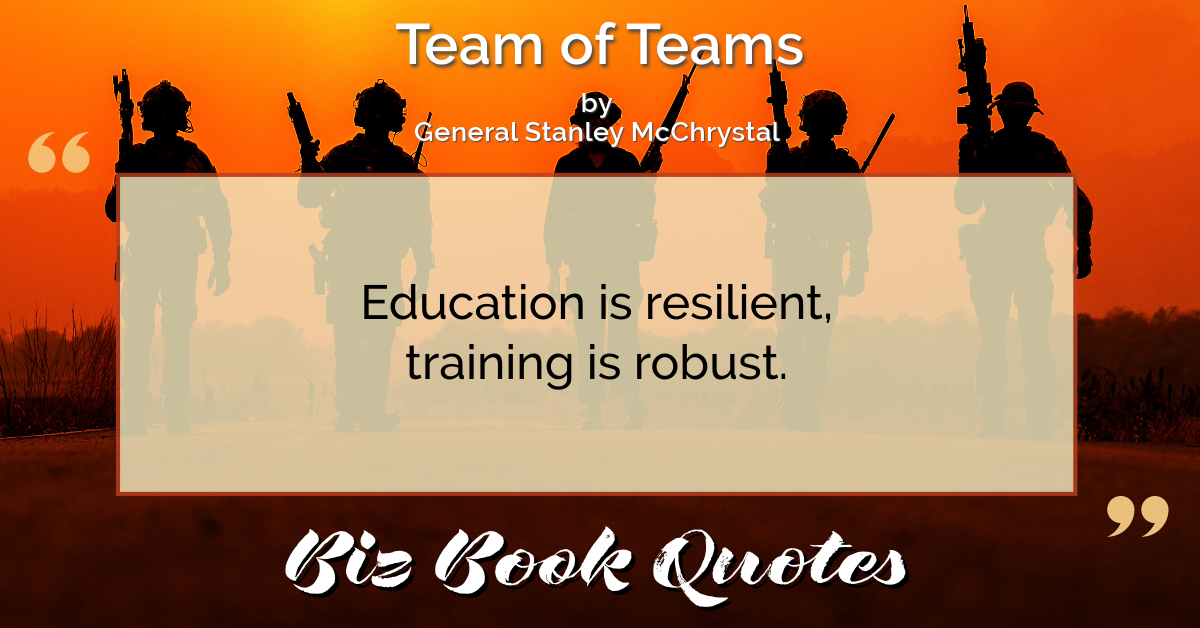
|
Team of Teams:
Education is resilient, training is robust.
|
153 |
|
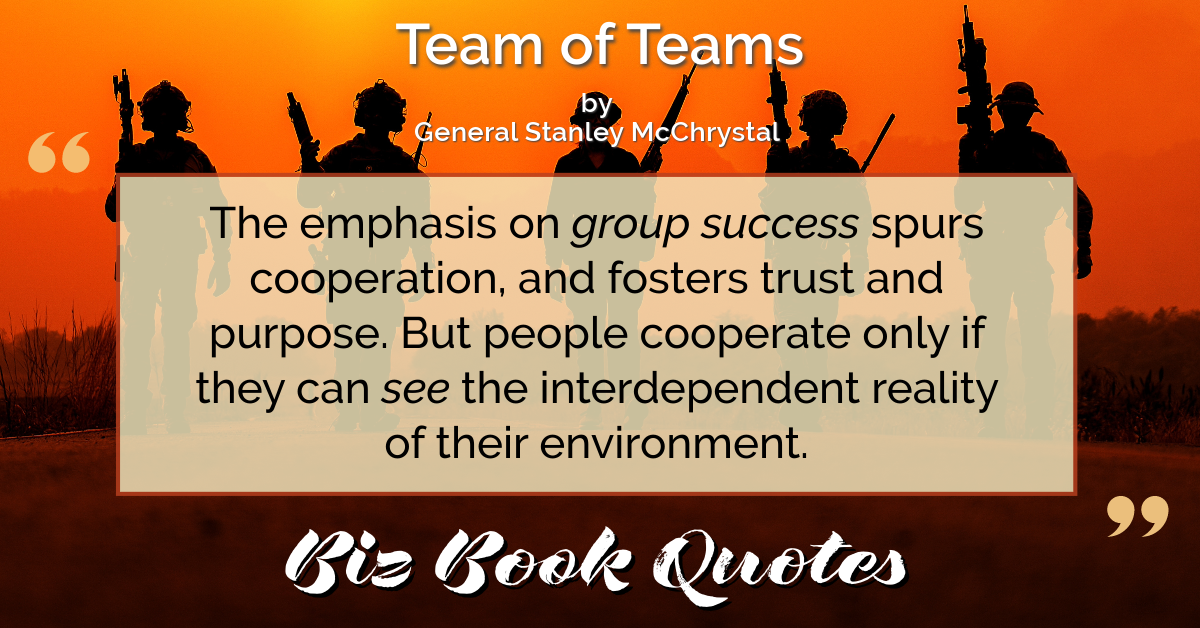
|
Team of Teams:
The emphasis on group success spurs cooperation, and fosters trust and purpose. But people cooperate only if they can see the interdependent reality of their environment.
|
153 |
|
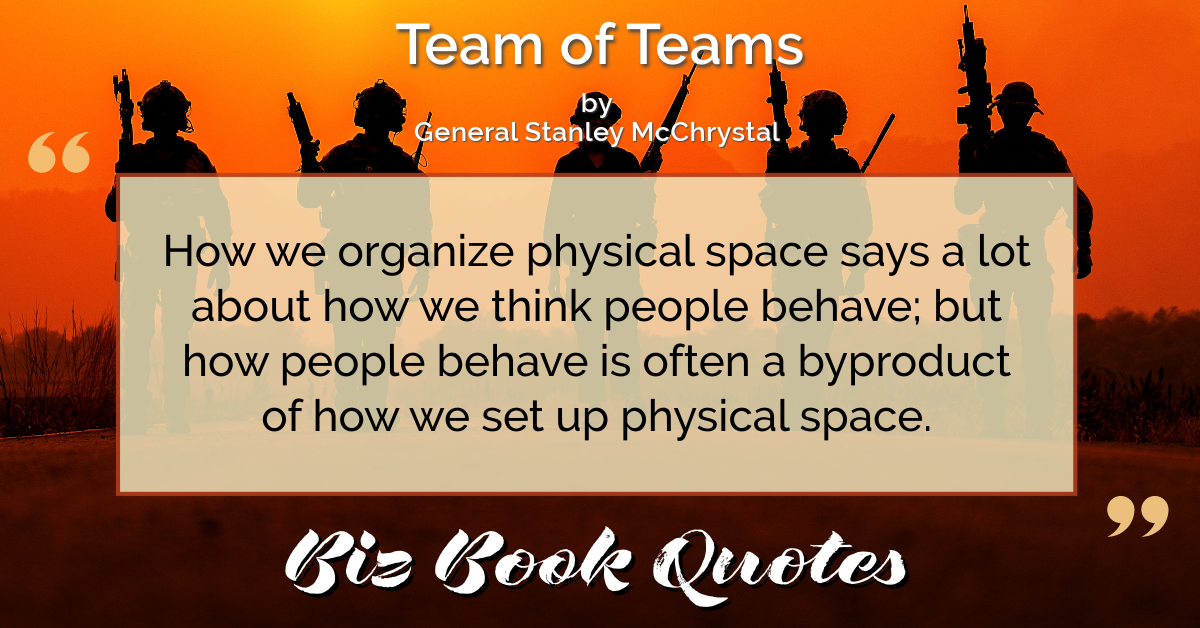
|
Team of Teams:
How we organize physical space says a lot about how we think people behave; but how people behave is often a byproduct of how we set up physical space.
|
159 |











